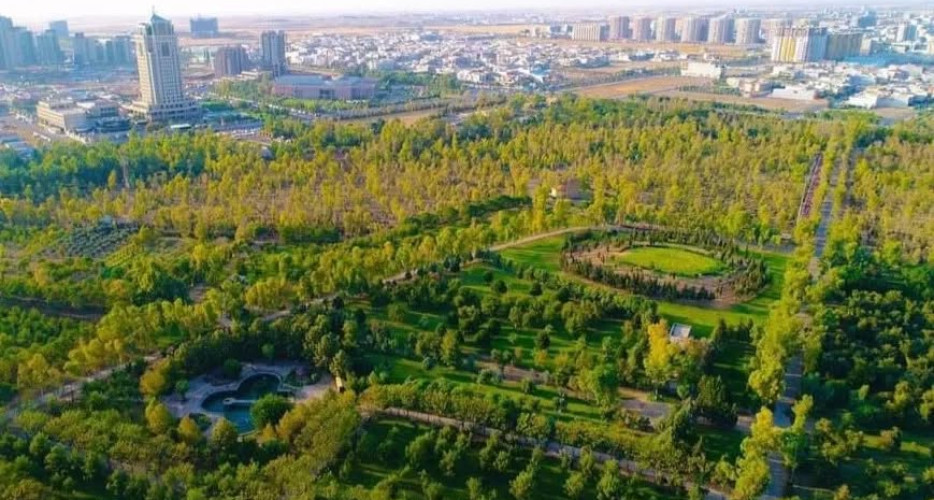Erbil Governor Launches Green Belt Project with 7 Million Olive and Pistachio Trees

Peregraf
Governor of Erbil, Omed Khoshnaw, has announced the launch of the Erbil Green Belt Project, a landmark environmental initiative that will see the planting of 7 million olive and pistachio trees around the city.
The project, part of Erbil’s master plan, will be implemented circularly outside the 150-meter road and cover an area of two kilometers. To sustain the effort, 10 water retention ponds will also be built in the project area.
"The project will have a significant positive impact on the environment and the quality of life for residents," the Governor said in a statement.
According to official estimates, the Green Belt will help reduce between 140,000 and 210,000 tons of carbon dioxide (CO2) in Erbil’s air annually, alongside cutting other harmful gases. It is also expected to lower city temperatures, mitigate desertification and dust storms, and improve overall air quality.
Beyond the environmental benefits, the Governor highlighted the project’s economic impact, noting that olive and pistachio cultivation will create hundreds of jobs and boost local agricultural production, thereby strengthening the regional economy.
Expansion of Urban Green Spaces
The announcement follows last week’s unveiling of additional green projects in Erbil, including plans to build five new public parks and plant 40,000 trees in 2025.
The new parks, spanning nearly 200 acres, are in various stages of development:
- Park near the 120-meter road – 80 acres, about 70% complete, with 8,000 trees.
- Rashkin Park – 47 acres, 16,000 trees planned.
- Nazdar neighborhood park – 4 acres, 80% complete, with 6,000 trees.
- Life neighborhood park – 7 acres, 70% complete, with 5,000 trees.
- Park near the 150-meter road intersection – 60 acres, construction ongoing.
"These projects are designed to both protect the environment and enhance the beauty of Erbil," Khoshnaw said.
Erbil currently has 26 large parks, 204 small gardens, 209 forests, 163 central islands, and 109 fountains. However, rapid urbanization, heavy traffic, and air pollution have put pressure on the city’s environment.
Officials say the new initiatives aim to improve air quality, promote healthier lifestyles, and ensure sustainable urban growth. The projects also align with the Kurdistan Regional Government’s broader commitment to environmental sustainability and urban development.
Environmental advocates, however, caution that long-term maintenance and enforcement will be crucial to ensuring the new parks and the Green Belt achieve their intended goals.